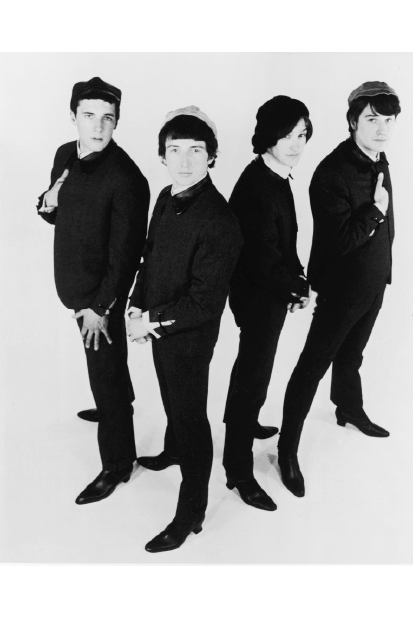We live in an age of astronomical marvels. Last year Europe’s Rosetta spacecraft made a daring rendezvous with the comet Churyumov-Gerasimenko, revealing a bizarre double-lobed mountain of ice and rock with landscapes of vertiginous crags and ashen scree slopes. In our image-saturated age it’s easy to forget that such views are only possible through the intermediary of sophisticated technology: cameras and computers and the spacecraft that carry them halfway across the solar system.
And yet this is nothing new. Ever since the Italian mathematician Galileo Galilei first turned his telescope to the heavens in the autumn of 1609, advances in technology and great strides in knowledge have gone hand in hand. Galileo’s Telescope is a new account of this turning point in the history of western civilisation, and its authors — three Italian history of science professors — give equal weight to the telescope’s scientific, cultural and political impacts. Translated into lucid English by Catherine Bolton, the book is full of entertaining insights and asides, but nevertheless retains a slightly academic tone, which is a pleasing contrast to the matey irreverence of much popular science and history writing today.
The customary version of Galileo’s story is familiar: his observations provided evidence in favour of the Copernican model of the solar system, displacing the Earth as the immovable centre of the cosmos and antagonising the Catholic church. He was tried for heresy, forced to recant publicly and spent his final years under house arrest. The tale has become shorthand for the subversive power of science, and Galileo’s apocryphal words, ‘And yet it moves!’ — supposedly muttered as he was led away by the Inquisition — symbolise defiance in the face of intellectual oppression.
Such popular accounts probably tell us as much about the obsessions of our own times as they do about Galileo himself. In contrast, Galileo’s Telescope immerses us in the world of the early 17th century, with all of its religious, political and philosophical divisions. The subtitle, ‘A European Story’, highlights the international nature of science, even at this early date. We see how news of the ‘spyglass’ and its abilities exploded across the continent within months of its invention in the Low Countries in 1608, often via diplomatic dispatches which testified to its military potential as a tool for spying on distant enemies.
When the news reached the Venetian Republic, where Galileo was employed as professor of mathematics, it seems to have provoked him into a feverish burst of activity. The authors reassess the surviving documents from this crucial but confusing period and their evidence is presented with forensic zeal. Galileo’s first record of the moons of Jupiter — a momentous discovery that catastrophically undermined the idea that all motion in the universe was centred on the Earth — was found on the back of a used envelope.
Galileo rushed his discoveries into print in the pamphlet Sidereus Nuncius or ‘Starry Messenger’ and, again within weeks, the ideas that it contained had ricocheted across Europe. Described by the English ambassador to Venice as ‘the strangest piece of news… ever yet received from any part of the world’, this was a revolutionary type of science writing, in which the message was conveyed as much by the artistry of the illustrations as by the words themselves.
The role played by art and literature in the dissemination of these discoveries is a major theme throughout Galileo’s Telescope, and the artistic responses were less one-sided than we might imagine. The English poet and clergyman John Donne feared that by overturning the hierarchy of the heavens the telescope had issued a challenge to the established social order here on Earth. But Galileo’s revelation of a cratered, mountainous and decidedly imperfect moon chimed neatly with its traditional role in Catholic iconography as a symbol for transience and inconstancy, and within months the artist Ludovico Cigoli had incorporated a rugged lunar profile into his fresco of ‘The Assumption of the Virgin in the Pauline Chapel’ in Rome, with the approval of none other than the Pope himself.
Galileo’s defection from Venice to the Florentine court of the Medici, his visits to Rome and his subsequent trial and conviction make for a compelling human story. But at the heart of this account is the shock and excitement of scientific discovery. The telescope revealed a brand new sky, one that was invisible without the aid of technology and which prompted a new way of understanding humanity’s relationship to nature.
Modern anxieties tend to focus on what science enables us to do, but Galileo’s
Telescope reminds us that the truly subversive potential of science lies in what it enables us to imagine. On 14 July this year, Nasa’s New Horizons probe will arrive at Pluto, bringing yet another distant world into sharp focus for the first time. No one knows for sure what the spacecraft will find, but, as its images are beamed back across the vast distances of interplanetary space, we will experience once again the thrill that Galileo must have felt in 1609 as he peered across the same dark gulf for the first time.






Comments